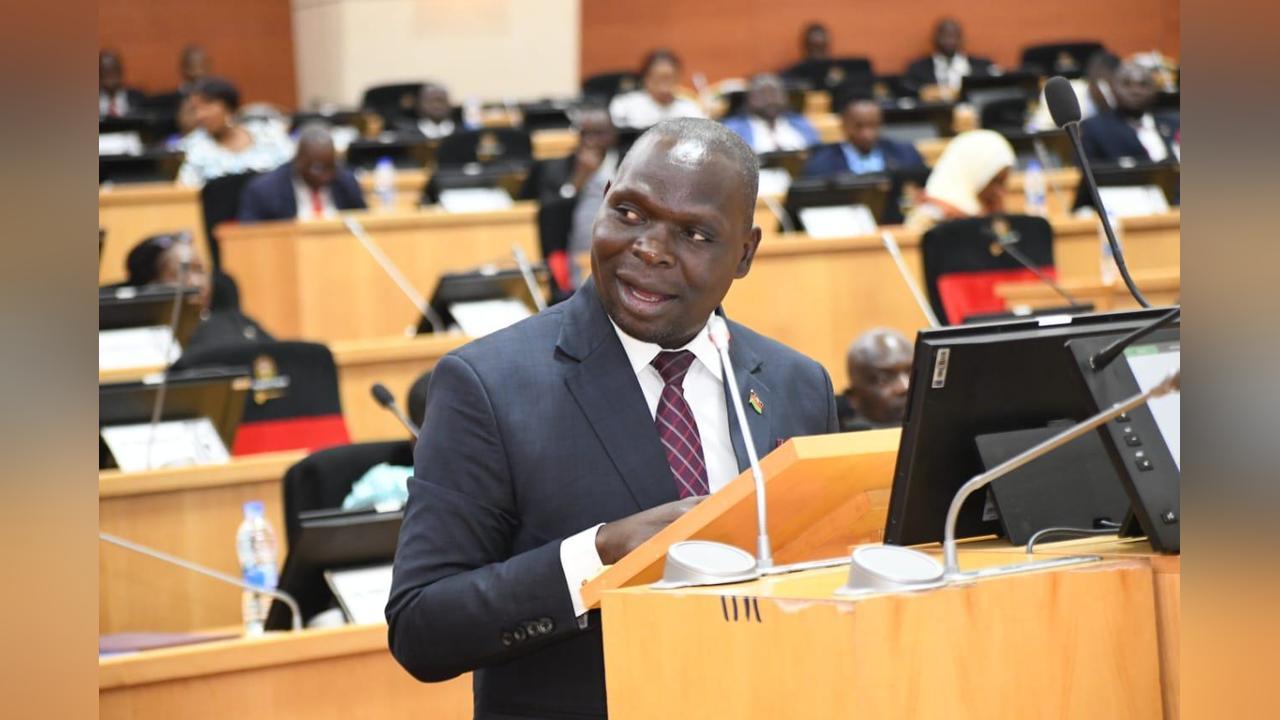Africa-Press – Malawi. Leader of Opposition in Parliament, Simplex Chithyola Banda, has challenged the government to confront a reality it has so far tiptoed around: Malawi’s energy future will remain fragile unless the country fixes the cost of power long before dreaming of exporting it.
His remarks come in sharp contrast to the upbeat tone struck by Natural Resources, Energy and Mining Minister Jean Mathanga, who earlier painted an ambitious picture of Malawi doubling its power generation and joining the league of electricity-exporting nations within the next few years.
Mathanga touted the Mpatamanga Hydropower Project — expected to generate 358.5MW once construction begins in 2026 — as the flagship that will end blackouts and position Malawi to export electricity through regional interconnectors. She further highlighted expansions at Salima Nanjoka Solar Plant, Wovwe Hydro, and the long-delayed 300MW Kam’mwamba coal-fired project, alongside multiple Independent Power Producer (IPP) agreements in solar, hydro, wind and gas.
But for Chithyola, the government’s glossy projections ignore an uncomfortable truth: Malawi continues to drain huge sums on power procurement, especially from IPPs whose tariffs remain steep.
“There is another element of carbon trading,” Chithyola advised, speaking after Mathanga’s statement. “We can generate carbon credits, sell those credits, and reduce the cost we pay when buying generated power.”
In other words, while government is dreaming of exporting electricity, Malawi is still struggling to afford the little power it produces now.
Chithyola’s argument is blunt: without smart financing strategies, the country will simply be producing more expensive power — deepening debt, raising tariffs and burdening consumers. Carbon trading, he said, offers a practical way to offset these costs and ease pressure on the energy budget.
His warning comes at a time when government is banking on donor-financed mega-projects to transform the power sector. Mathanga assured Parliament that Malawi’s 551MW generation capacity will nearly double within three years once Mpatamanga comes online, eliminating blackouts “once and for all.”
But the Leader of Opposition insisted that generation expansion alone is not a victory if tariff structures, IPP costs and financing models remain unchanged.
To Chithyola, the path to stable energy lies not just in big dams and solar fields, but in ensuring that Malawi can afford the power it produces — and that calls for innovative revenue streams such as carbon credit trading, which many African countries are already leveraging to cut energy costs and raise foreign exchange.
As Mathanga sells a future of exporting electricity, Chithyola is demanding that Malawi first stop overpaying for power at home.
The clash is more than political theater — it exposes a deeper question: Can Malawi build a sustainable energy sector without first fixing how it pays for the power it already buys?
For More News And Analysis About Malawi Follow Africa-Press






